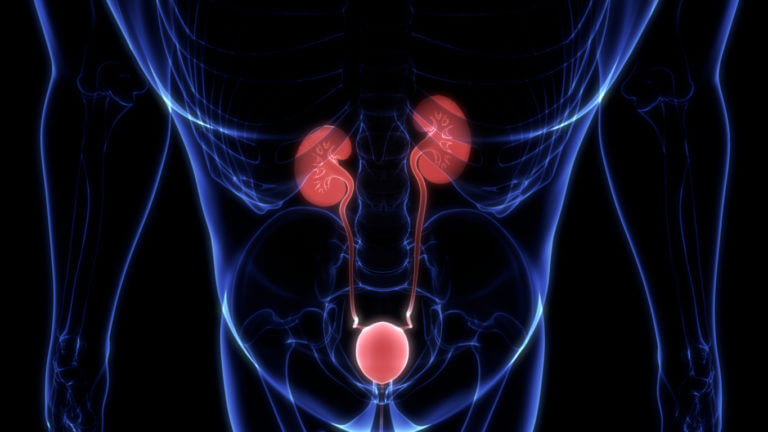
Urogynecology is a sub-specialty of gynecology that focuses on problems associated with dysfunction of the pelvic floor and bladder. Pelvic floor disorders can affect the bladder, reproductive organs, and bowels, leading to issues such as urinary incontinence, fecal incontinence, and prolapse. There are a number of different tests and procedures that may be carried out to diagnose and treat urogynecological problems.
Urogynecologists have experience treating all conditions of the female urinary and reproductive tract. However, their expertise lies in clinical problems associated with dysfunction of the pelvic floor and bladder. Urogynecology concentrates primarily on women who are experiencing symptoms related to urinary incontinence, pelvic organ prolapse, fecal incontinence, and pelvic floor disorders. They also care for women who have experienced trauma to the perineum during childbirth.
Common Urogynecological Conditions
There are a wide range of conditions and circumstances that can weaken, damage, or tear the pelvic floor, such as childbirth, aging, hysterectomy, obesity, genetics, chronic constipation, chronic coughing, cancer treatment, and repeated strenuous activity and heavy lifting. The most common conditions treated by a urogynecologist include:
- Overactive bladder syndrome
- Stress urinary incontinence
- Urgency urinary incontinence
- Fecal incontinence
- Pelvic organ prolapse
- Post-hysterectomy prolapse
- Congenital differences of the lower reproductive tract
- Urethral diverticulum
- Vesicovaginal and rectovaginal fistulas
Diagnostic Tests and Procedures
Your condition and symptoms will determine the tests and procedures you need to diagnose and treat your condition effectively. Your urogynecologist will carry out a thorough evaluation, which involves checking your medical history, discussing your symptoms, and performing a pelvic exam. A pelvic exam is key to evaluating pelvic organ prolapse. Prolapse occurs when the muscles and ligaments supporting the pelvic organs weaken, causing the organs to descend in the pelvis. This can create a bulging sensation, and in severe casesa protrusion, in the vagina.
The most common urogynecology tests and procedures include:
- Urodynamic studies–a series of tests that evaluate how well parts of the lower urinary tract (bladder, sphincters, and urethra) function and how well the bladder works to store and release urine.
- Urine testing–to evaluate the urine for blood, infection, or abnormal cells, which may be contributing to problematic symptoms.
- Cystoscopy/ureteroscopy– a procedure to look inside the urinary tract to evaluate and in some cases treat, problems or abnormalities. Uses a small, specialized instrument to transmit detailed imagesof the urethra, bladder, ureters, or kidneys on to a computer monitor.
- Pelvic ultrasound – imaging study that allows quick visualization of the female pelvic organs and structures, including the uterus, cervix, vagina, fallopian tubes, and ovaries. It can also be helpful to evaluate the bladder, ureters, and kidneys. Depending on symptoms, the procedure can be transvaginal(through the vagina) or transabdominally (through the abdomen).
- Defecography– MRI imaging study to evaluate the mechanics and process of defecation. Obtains images at various stages of defecation to evaluate how well the pelvic muscles and rectum are functioning. It is used to diagnose problems like fecal incontinence, constipation, and prolapse.
Treatment for Pelvic Floor Problems
There are a range of effective, innovative treatment options available. Your urogynecologist will work with you to develop a customized treatment plan based on your symptoms and condition, and other factors such as overall health, age, and personal preferences. This may include non-surgical or surgical treatments.
Non-surgical treatments can include:
- Kegel exercises (pelvic floor muscle training exercises)
- Physical therapy to improve pelvic floor
- Injections, such as bladder Botox for bladder control problems
- Medications
- Vaginal pessary (device to treat some types of prolapse and improve bladder control)
Surgical treatments may be recommended if non-surgical treatments do not alleviate symptoms successfully. Many surgeries can be performed as minimally invasive procedures, which are associated with fewer complications and a quicker recovery. These can include:
- Pelvic floor reconstructive surgery (to correct pelvic organ prolapse)
- Hysterectomy (removal of the uterus)
- Mesh midurethral sling (to treat stress urinary incontinence)
- Repair surgery for damaged anal or sphincter muscles
- Enterocele repair (to move the small intestine back into position and repair stretched/torn tissue)
- Rectovaginal/vesicovaginal fistula repair (to repair an abnormal opening between the vagina and the bladder or intestine)
- Urethral diverticulum surgery (removal of the abnormal sac that forms along the urethra)
Depending on your symptoms, your urogynecologist may recommend a combination of treatments for your condition.
Urogynecology in Syracuse, NY
At University OB/GYN Associates, our board-certified, compassionate urogynecologists provide expert care for a wide range of issues. We specialize in women’s health care and provide obstetrical and gynecological health care throughout all stages of life.
To learn more about our services or to make an appointment with one of our expert clinicians, call us today at (315) 464-5162. For your convenience we have multiple locations in Syracuse.



